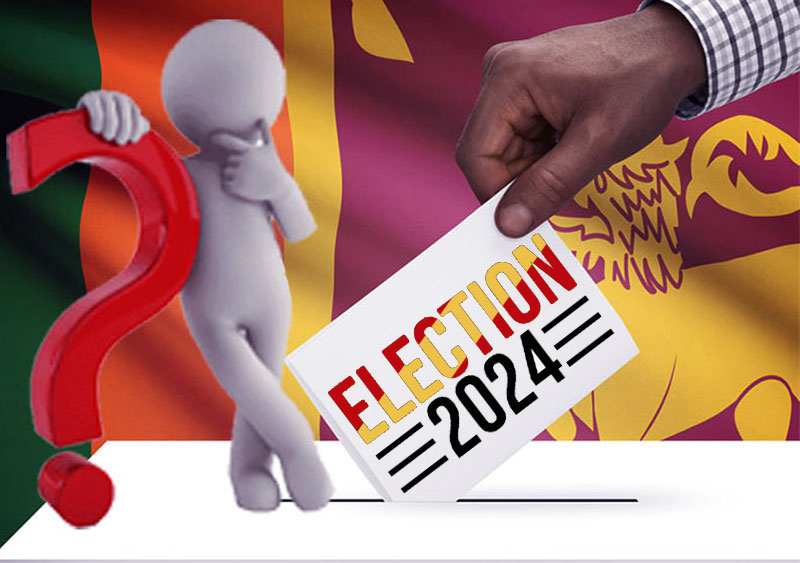The presidential election is the only election that the Constitution has set a time frame for and therefore it cannot be postponed, Commissioner General of Elections, Saman Sri Ratnayake has said.
“The Election Commission has no direct authority over holding other elections. For example, the tenure of the local council is four years. The line minister can hold the elections a year before, or he can extend the tenure of councils by a year. The tenure of a Parliament is five years but the President can dissolve Parliament after two and a half years into its tenure. This is not the case with a presidential election.”
The Constitution says that the tenure of the presidency is five years and there are no provisions to extend the tenure, according to Ratnayake. “On 18 November 2019, Gotabaya Rajapaksa was sworn in as President. The Constitution stipulates that the next election should be held between 18 September and 18 October.”
The Commissioner General of Elections said that even if the President dissolved Parliament in the first week of September, they had the capability of holding both the general and presidential election on dates close to each other.
“The Constitution says that if the President dissolves the Parliament, he or she is bound to provide the necessary funding and other facilities. This year, we asked for 20 billion rupees, to hold the presidential and local or provincial council elections. We only got 10 billion but if the government decides to hold local or provincial council elections, the Treasury has to provide us with necessary funds,” he said.
Ratnayake said the estimates for 2024 elections were based on prices that prevailed in late 2023. He added that there are about 800,000 first time voters for an election held in 2024.
Commenting on campaign financing, he said that it was not a new concept for Sri Lanka and campaign expenditure by candidates had been limited by law until 1977.
“George E. de Silva lost his seat in Parliament, in 1948, following an election petition, filed by his opponent T.B. Illangaratne, found him guilty and deprived him of his civil rights. Illangaratne said Silva got his manifesto translated for a fee of 40 rupees but had not put that on his list of expenditure. K. M. P. Rajaratne was fined Rs. 100 in 1955 by the district court in Badulla for not submitting his election expenses. He also lost his seat. The system operated during the first past the post system,” he said.
This changed with the proportional representation system where the political party submitted the nomination of candidates, he said. Before this each candidate was responsible for handing over his or her own nominations, Ratnayake said.
A politician needed funds to run a campaign, he said. However, when there was no cap on expenditure money became the determining factor in winning elections, he said. During the 2018 local council election, a candidate had spent 40 million rupees for a ward with 1,800 votes in Maduraketiya, Moneragala, Ratnayake said. The candidate was returned but was unseated by the Monaragala High Court subsequently.


